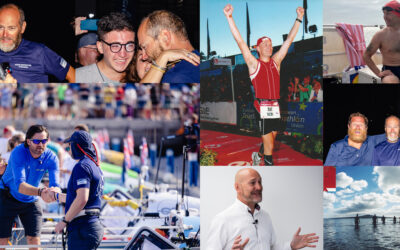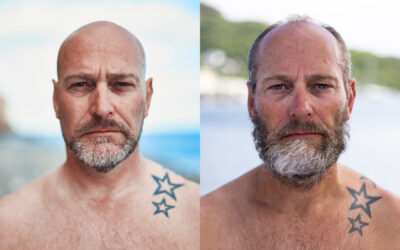Last week my ego nearly did. I planned to do the climbing part of the 3 peaks challenge and drive the support vehicle for the other climbers between each one.
My son Joseph was joining me. Was I doing it to impress him? Not consciously, but my ego definitely was. 20 minutes into the first climb, I knew after recently rowing the Atlantic and using different muscle groups, I was nowhere near the level of training and fitness needed for this tough challenge.
Even worse, I was holding the amazing Richard Carman and Will Manners back. Swallowing my pride, I dropped out. I told them I would be waiting to support them all the way. They accomplished the incredible 3 Peaks Cycle Challenge, raising over £6700 for The Brain Tumour Charity.
I like to be out there doing it and I think I’m pretty good at looking at what I do, what I want to do, and able to assess my ability realistically. I have climbed Mont Blanc, so I know I can climb. This time? I’d totally underestimated my fitness level but my overriding feeling was not wanting to be a dead weight for Rich and Will to carry.
Dropping back to being ‘just’ one of the team is a hard lesson to learn. I struggle with it and I know I probably always will. I’m hardwired for competition, but I want to change this limiting behaviour. When you’re not the one in a starring role it can be tough to feel that your contribution is valuable and valued. I’m not used to taking a supporting role, but being able to accept this was a rich experience. I’m more than grateful that they had complete trust in Joseph and me to be the ones they’d rely on in an emergency.
Leadership roles are varied and the term ‘leader’ implies one person per team. I haven’t found that to be the case, not in business or in life. Any team of individuals has varied and significant skills, crucial to the overall success of a venture. Recognising leadership ability and not limiting it to the person up front, helps us to value each individual contribution and understand the vital role each one plays to motivating other team members.
In cricket for example, you have the captain. He/she is the outright leader, but there are sub groups with their own leaders: the bowling group, led by the bowler who can inspire best performances; the batting group, influenced by the batter who leads by example; the introverted personalities, led by the person whose mission is to keep the spirits up. Leaders lead, whether they’re officially appointed or not.
Recognising leadership motivates people and gives them responsibility to continue to perform and lead others to greater achievements. When you’re ‘seen’ you do better. And when your leadership is recognised, even in a minor role, it makes you feel great.
Understanding that wanting to climb the peaks was my ego talking, but knowing how vital the support vehicle was to Rich and Will, allowed me to forget about my ego. I enjoyed every second of the trip and the time I spent with Joseph? It was a priceless gift.








